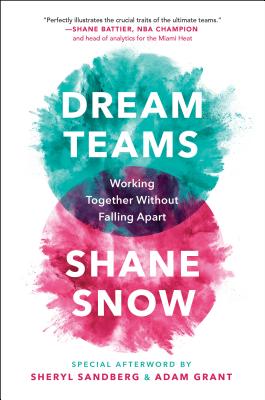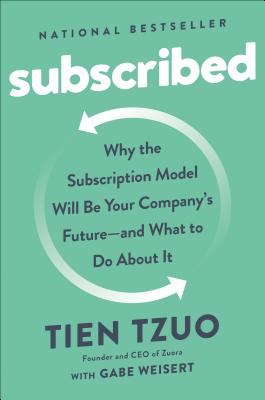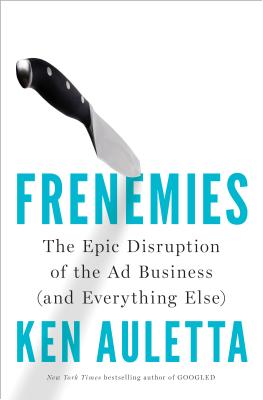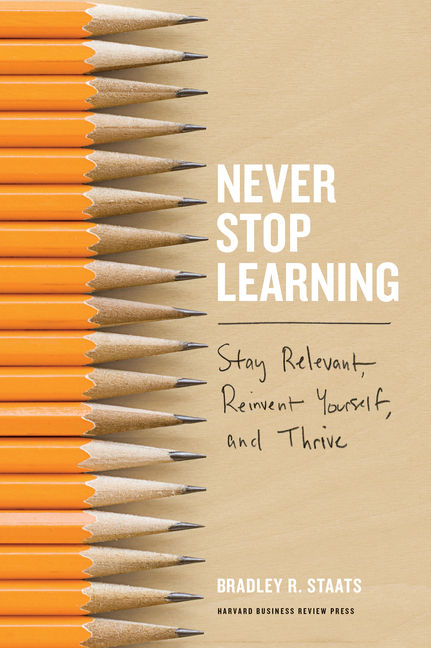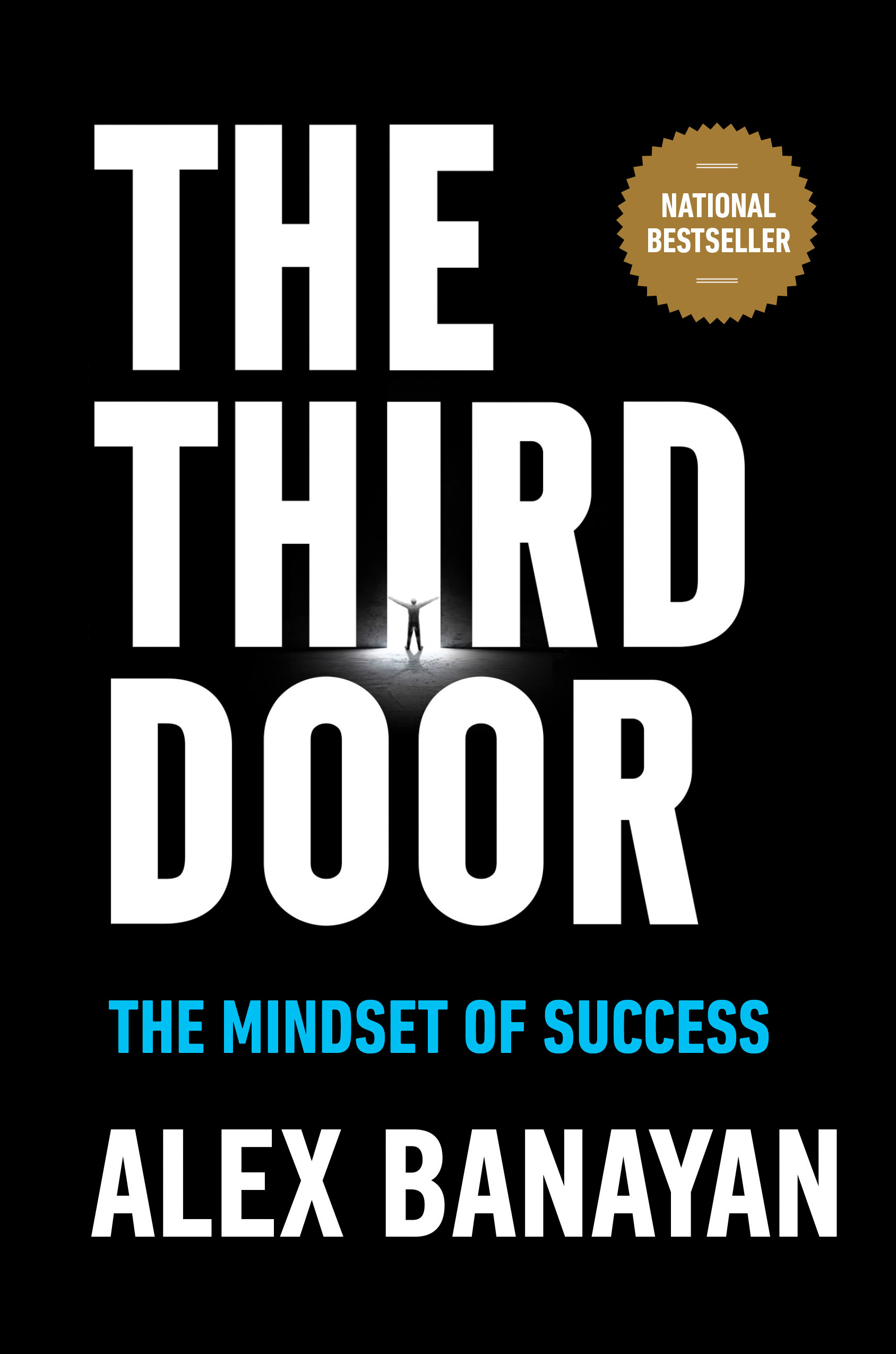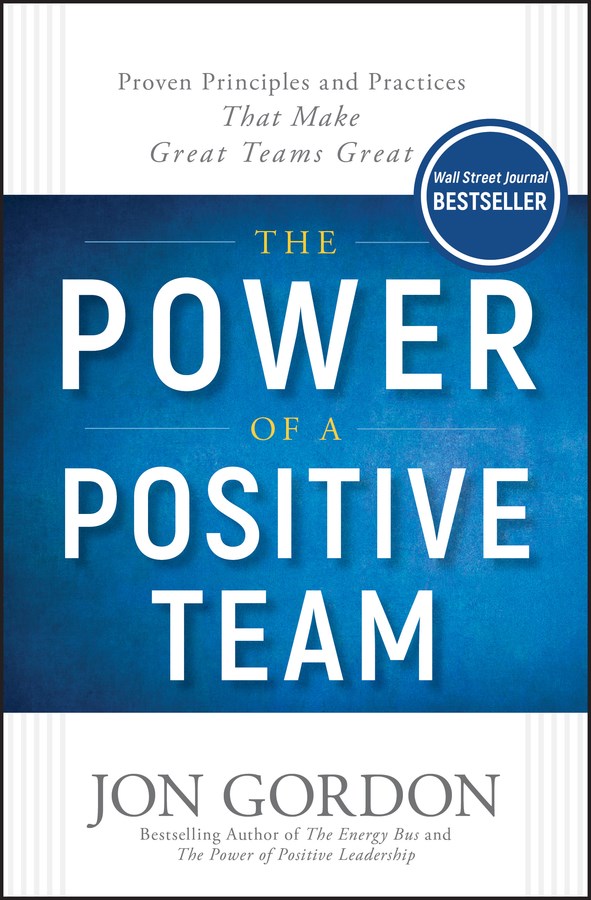Business Books to Watch in June
June 05, 2018
Twenty books we'll be looking at more closely in the month of June.
In order of their release dates, these are twenty books we'll be looking at more closely in the month of June.
 A Good Time to be a Girl: Don’t Lean In, Change the System by Helena Morrissey | Willam Collins
A Good Time to be a Girl: Don’t Lean In, Change the System by Helena Morrissey | Willam Collins
From the founder of the worldwide 30% Club campaign comes a career book for women in a transforming world who don't just want to lean in, but instead, shatter the paradigm as we know it.
Five years have passed since women were exhorted to "Lean In." Over that time, the world has transformed beyond all expectations. This book offers a radical new look at the change all around us. It is a guide to how we can make further progress towards gender equality in the workplace by changing the system, not ourselves.
Drawing on her experience as a City CEO, mother of nine, and leader of the successful 30% Club campaign to achieve more women on UK company boards, Helena Morrissey has written a powerful handbook for gender equality in the workplace. Filled with career advice, it is a key resource for those just starting out or women looking to break through to the next level, and those who want to support or understand them. It is a vital text for business leaders to effect positive change in the boardroom or the back office to achieve greater commercial success.
We talk about "diversity" initiatives to refer to girls and women, who make up half the world, and the "inclusion" of those with less privileged socio-economic backgrounds than the top 10% although that description applies to most of us. After centuries of patriarchy, an unprecedented opportunity to rebalance masculine and feminine influence is within sight.
"Feminine" attributes such as empathy and emotional intelligence are ever-more valuable in a world where we need true diversity of thought to listen and learn from those who hold different views. Using the stories of professionals of all ages and genders, as well as her unconventional family structure as examples, the author explains how an accelerated path towards gender equality can liberate all of us.
In this powerful guide for success, Helena Morrissey demonstrates that we can be equal but we are different—and together we are stronger. A Good Time to be a Girl demonstrates how homogeneity is flawed, offering a radical solution: rather than leaning into an existing system, we must change the paradigm.
 Dream Teams: Working Together Without Falling Apart by Shane Snow | Portfolio
Dream Teams: Working Together Without Falling Apart by Shane Snow | Portfolio
Award-winning entrepreneur and journalist Shane Snow reveals the counterintuitive reasons why so many partnerships and groups break down—and why some break through.
The best teams are more than the sum of their parts, but why does collaboration so often fail to fulfill this promise? In Dream Teams, Snow takes us on an adventure through history, neuroscience, psychology, and business, exploring what separates groups that simply get by together from those that get better together.
You’ll learn:
- How ragtag teams—from soccer clubs to startups to gangs of pirates—beat the odds throughout history.
- Why DaimlerChrysler flopped while the Wu-Tang Clan succeeded, and the surprising factor behind most failed mergers, marriages, and partnerships.
- What the Wright Brothers’ daily arguments can teach us about group problem solving.
- Pioneering women in law enforcement, unlikely civil rights collaborators, and underdog armies that did the incredible together.
- The team players behind great social movements in history, and the science of becoming open-minded.
Provocative and entertaining, Dream Teams is a landmark work that will change the way we think about people, progress, and collaboration.
 Leading from Purpose: Clarity and the Confidence to Act When It Matters Most by Nick Craig | Hachette Books
Leading from Purpose: Clarity and the Confidence to Act When It Matters Most by Nick Craig | Hachette Books
Drawing on ten years of experience working with more than 10,000 executives from companies around the globe, Nick Craig takes you on a revelatory journey to understand your purpose, find clarity and focus, and lead with inspiration.
When uncovered, purpose becomes our most fundamental guiding principle. Explaining where true purpose lies and demystifying where it doesn't, Craig offers the methods through which anyone can find their purpose. He identifies three pathways that will assess where you are with your purpose and where you should be going.
Illustrated by case studies of leaders from all walks of life and industries, Craig shares their unique stories to show how top leaders are energized by their purpose, finding in it the confidence they need to properly evaluate high-stakes decisions and take the optimal action. The best leaders access their purpose especially when facing the unknown, drawing on the source of it to energize themselves. Purpose also redefines their relationships to stress, allowing them to thrive where others just survived, and to postpone momentary, fleeting rewards in favor of leaving a sustained, meaningful impact.
Accessible, methodical, and eminently practical, Leading from Purpose offers the comprehensive toolbox with which everyone—whether a c-suite executive of behind-the-scenes office worker—can live out their purpose and achieve success on their own terms.
If you find yourself in an organization that is struggling to live its purpose, Craig's insights on how to bring your purpose and the organization's purpose into the same room at the same time is game-changing and will redefine your life and career.
 Subscribed: Why the Subscription Model Will Be Your Company's Future—and What to Do About It by Tien Tzuo, with Gabe Weisert | Portfolio
Subscribed: Why the Subscription Model Will Be Your Company's Future—and What to Do About It by Tien Tzuo, with Gabe Weisert | Portfolio
Companies like Netflix, Spotify, and Salesforce are just the tip of the iceberg for the subscription model. The real transformation—and the real opportunity—is just beginning.
Subscription companies are growing nine times faster than the S&P 500. Why? Because unlike product companies, subscription companies know their customers. A happy subscriber base is the ultimate economic moat.
Today’s consumers prefer the advantages of access over the hassles of maintenance, from transportation (Uber, Surf Air), to clothing (Stitch Fix, Eleven James), to razor blades and makeup (Dollar Shave Club, Birchbox). Companies are similarly demanding easier, long-term solutions, trading their server rooms for cloud storage solutions like Box. Simply put, the world is shifting from products to services.
But how do you turn customers into subscribers? As the CEO of the world’s largest subscription management platform, Tien Tzuo has helped hundreds of companies transition from relying on individual sales to building customer-centric, recurring-revenue businesses. His core message in Subscribed is simple: Ready or not, excited or terrified, you need to adapt to the Subscription Economy—or risk being left behind.
Tzuo shows how to use subscriptions to build lucrative, ongoing one-on-one relationships with your customers. This may require reinventing substantial parts of your company, from your accounting practices to your entire IT architecture, but the payoff can be enormous. Just look at the case studies:
- Adobe transitions from selling enterprise software licenses to offering cloud-based solutions for a flat monthly fee, and quadruples its valuation.
- Fender evolves from selling guitars one at a time to creating lifelong musicians by teaching beginners to play, and keeping them inspired for life.
- Caterpillar uses subscriptions to help solve problems—it’s not about how many tractors you can rent, but how much dirt you need to move.
In Subscribed, you’ll learn how these companies made the shift, and how you can transform your own product into a valuable service with a practical, step-by-step framework. Find out how how you can prepare and prosper now, rather than trying to catch up later.
 Frenemies: The Epic Disruption of the Ad Business (and Everything Else) by Ken Auletta | Penguin Press
Frenemies: The Epic Disruption of the Ad Business (and Everything Else) by Ken Auletta | Penguin Press
An intimate and profound reckoning with the changes buffeting the $2 trillion global advertising and marketing business from the perspective of its most powerful players, by the bestselling author of Googled.
Advertising and marketing touches on every corner of our lives, and is the invisible fuel powering almost all media. Complain about it though we might, without it the world would be a darker place. And of all the industries wracked by change in the digital age, few have been turned on its head as dramatically as this one has. We are a long way from the days of Don Draper; as Mad Men is turned into Math Men (and women—though too few), as an instinctual art is transformed into a science, the old lions and their kingdoms are feeling real fear, however bravely they might roar.
Frenemies is Ken Auletta’s reckoning with an industry under existential assault. He enters the rooms of the ad world’s most important players, some of them business partners, some adversaries, many “frenemies,” a term whose ubiquitous use in this industry reveals the level of anxiety, as former allies become competitors, and accusations of kickbacks and corruption swirl. We meet the old guard, including Sir Martin Sorrell, the legendary head of WPP, the world’s largest ad agency holding company; while others play nice with Facebook and Google, he rants, some say Lear-like, out on the heath. There is Irwin Gotlieb, maestro of the media agency GroupM, the most powerful media agency, but like all media agencies it is staring into the headlights as ad buying is more and more done by machine in the age of Oracle and IBM. We see the world from the vantage of its new powers, like Carolyn Everson, Facebook’s head of Sales, and other brash and scrappy creatives who are driving change, as millennials and others who disdain ads as an interruption employ technology to zap them. We also peer into the future, looking at what is replacing traditional advertising. And throughout we follow the industry’s peerless matchmaker, Michael Kassan, whose company, MediaLink, connects all these players together, serving as the industry’s foremost power broker, a position which feasts on times of fear and change.
Frenemies is essential reading, not simply because of what it says about this world, but because of the potential consequences: the survival of media as we know it depends on the money generated by advertising and marketing—revenue that is in peril in the face of technological changes and the fraying trust between the industry’s key players.
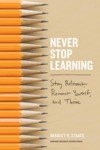 Never Stop Learning: Stay Relevant, Reinvent Yourself, and Thrive by Bradley R. Staats | Harvard Business Review Press
Never Stop Learning: Stay Relevant, Reinvent Yourself, and Thrive by Bradley R. Staats | Harvard Business Review Press
Keep learning, or risk becoming irrelevant.
It's a truism in today's economy: the only constant is change. Technological automation is making jobs less routine and more cognitively challenging. Globalization means you're competing with workers around the world. Simultaneously, the internet and other communication technologies have radically increased the potential impact of individual knowledge.
The relentless dynamism of these forces shaping our lives has created a new imperative: we must strive to become dynamic learners. In every industry and sector, dynamic learners outperform their peers and realize higher impact and fulfillment by learning continuously and by leveraging that learning to build yet more knowledge.
In Never Stop Learning, behavioral scientist and operations expert Bradley R. Staats describes the principles and practices that comprise dynamic learning and outlines a framework to help you become more effective as a lifelong learner. The steps include:
- Valuing failure
- Focusing on process, not outcome, and on questions, not answers
- Making time for reflection
- Learning to be true to yourself by playing to your strengths
- Pairing specialization with variety
- Treating others as learning partners
Replete with the most recent research about how we learn as well as engaging stories that show how real learning happens, Never Stop Learning will become the operating manual for leaders, managers, and anyone who wants to keep thriving in the new world of work.
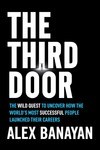 The Third Door: The Wild Quest to Uncover How the World's Most Successful People Launched Their Careers by Alex Banayan | Currency
The Third Door: The Wild Quest to Uncover How the World's Most Successful People Launched Their Careers by Alex Banayan | Currency
The intrepid, larger-than-life journey of an 18-year-old USC college freshman who sets out from his dorm room to track down the most successful people in their fields—Bill Gates, Warren Buffett, Lady Gaga, and a score of others—to find out how these icons broke through and launched their careers.
The Third Door takes readers on a non-stop adventure ride, from Bill Gates’s Seattle office to a nightclub with Lady Gaga, from a campus event with Steven Spielberg to a massive arena with Warren Buffett, as Alex Banayan pursues his “mission”—passing on the secrets to career success to a younger generation. Banayan spent five years traveling the world, decoding the insights of some of the world’s most remarkable people. Through interviews with Bill Gates, Jane Goodall, Steve Wozniak, Maya Angelou, Larry King, Jessica Alba, Pitbull, and a host of others, Banayan discovers the key they have in common: they all took the Third Door, the unconventional path.
Banayan reveals the specific strategies and tools he learned that will have others taking your call, listening to your pitch, and inviting you in. But at heart, The Third Door is as much about Alex Banayan’s own coming-of-age journey as he gathers the breadcrumbs and insights that he hopes will instruct and inspire his generation to achieve greatness themselves.
 Straight Talk for Startups: 100 Insider Rules for Beating the Odds—From Mastering the Fundamentals to Selecting Investors, Fundraising, Managing Boards, and Achieving Liquidity by Randy Komisar & Jantoon Reigersman | HarperBusiness
Straight Talk for Startups: 100 Insider Rules for Beating the Odds—From Mastering the Fundamentals to Selecting Investors, Fundraising, Managing Boards, and Achieving Liquidity by Randy Komisar & Jantoon Reigersman | HarperBusiness
Veteran venture capitalist Randy Komisar and finance executive Jantoon Reigersman share no-nonsense, counterintuitive guidelines to help anyone build a successful startup.
Over the course of their careers, Randy Komisar and Jantoon Reigersman continue to see startups crash and burn because they forget the timeless lessons of entrepreneurship. But, as Komisar and Reigersman show, you can beat the odds if you quickly learn what insiders know about what it takes to build a healthy foundation for a thriving venture. In Straight Talk for Startups they walk budding entrepreneurs through 100 essential rules—from pitching your idea to selecting investors to managing your board to deciding how and when to achieve liquidity. Culled from their own decades of experience, as well as the experiences of their many successful colleagues and friends, the rules are organized under broad topics, from “Mastering the Fundamentals” and “Selecting the Right Investors,” to “The Ideal Fundraise,” “Building and Managing Effective Boards,” and “Achieving Liquidity.”
Vital rules you’ll find in Straight Talk for Startups include:
- The best ideas originate from founders who are users
- Create two business plans: an execution plan and an aspirational plan
- Net income is an option, but cash flow is a fact
- Don’t accept money from strangers
- Personal wealth doesn’t equal good investing
- Small boards are better than big ones
- Add independent board members for expertise and objectivity
- Too many unanimous board decisions are a sign of trouble
- Choose an acquirer, don’t wait to be chosen
- Learn the rules by heart so you know when to break them
Filled with helpful real-life examples and specific, actionable advice, Straight Talk for Startups is the ideal handbook for anyone running, working for, or thinking about creating a startup, or just curious about what makes high-potential ventures tick.
 The Emperor of Shoes by Spencer Wise | Hanover Square Press
The Emperor of Shoes by Spencer Wise | Hanover Square Press
From an exciting new voice in literary fiction, a transfixing and timely story about a young Jewish American expat who assumes the helm of his family's shoe factory in present day southern China, and his burgeoning relationship with a seamstress intent on inspiring dramatic political change, for fans of Adam Johnson, Mischa Berlinski, and Madeleine Thien.
Alex Cohen, a 26-year old Jewish Bostonian, is living in a remote village in southern China where his father runs a family-owned shoe factory. Lost and searching, Alex reluctantly assumes the helm of the company, absorbing the generations-old secrets of the trade from his loving but neurotic father. As Alex explores the plant’s vast floors and assembly lines he comes to a grim realization: employers are exploited, regulatory systems are corrupt, and Alex’s own father is engaging in payoffs and bribes to protect the bottom line. Then he meets a seamstress named Ivy.
As Alex and Ivy grow close, Alex’s sympathies begin to shift to the Chinese workers, who labor under brutal conditions, stitching, sewing, and cobbling shoes for American companies. But when Ivy’s past resurfaces, her broader goals become apparent. She is an embedded organizer of a pro-democratic Chinese party, secretly sowing dissonance among her fellow laborers. Will Alex remain loyal to his father and his heritage? Or will the sparks of revolution ignite?
Drawing on his own family’s experiences, Spencer Wise explores the evolution of a precarious Jewish family empire as it struggles to adapt in a global landscape. Deftly plotted and vibrantly drawn, The Emperor of Shoes is a timely meditation on idealism, ambition, father-son rivalry, and cultural revolution, set against a vibrant backdrop of social and technological change in contemporary southern China.
 The Shift: How Seeing People as People Changes Everything by Kimberly White | Berrett-Koehler
The Shift: How Seeing People as People Changes Everything by Kimberly White | Berrett-Koehler
A vivid depiction and real-world example of the personal and institutional impact of the Arbinger Insititute’s transformative ideas (Leadership and Self-Deception; 1.4 million copies sold) within a healthcare organization—The HG nursing homes.
Without realizing it, we tend to treat people as objects. We see them solely in terms of their usefulness to us. This invites tension and conflict, and changing this mindset is at the heart of the Arbinger Institute’s work. This book is a moving true story of an unhappy woman whose life and family were transformed when she began researching how Arbinger’s ideas were being implemented in nursing homes. In general, nursing homes are scorned healthcare institutions—but it was in these transformed HG homes that Kimberly White discovered a new way of “seeing” people and underwent her own personal transformation. Both HG and White shifted their perspective and mindset based on their adoption of The Arbinger Institute’s basic principles.
Kimberly White was astonished to discover that those who choose to care for the elderly and ill, earning low pay in a maligned industry, were nevertheless full of satisfaction, compassion and love because of their ability to see their patients as real and true and valuable people. White’s research became a personal exploration of how to see the people in her own life as people in that same profound way. When she did, everything in her life and her world changed—and the reader’s will too.
 Leap: How to Thrive in a World Where Everything Can Be Copied by Howard Yu | PublicAffairs
Leap: How to Thrive in a World Where Everything Can Be Copied by Howard Yu | PublicAffairs
Outlasting competition is difficult. Doing so for decades is nearly impossible. Yet some pioneering companies have endured and even prospered for generations. How did they do it? And what can we learn from them?
In today's competitive environment where latecomers can replicate almost any product or service for less, and where expert intuition and market intelligence have been overtaken by machine algorithms, companies can no longer just be very good at what they do. They need to leap to new knowledge disciplines. The best leap repeatedly. And it's the combination of two skills—mastery of the old and the new—hat empowers them with the best competitive advantage.
To discover how some companies not only survive but thrive for centuries, strategy expert Howard Yu identifies key trends from business history, skillfully extracting timeless lessons and applying them to today. He illustrates how managers can look to leverage technological shifts, increasingly ubiquitous connectivity, smart machines, and managerial creativity—in order to leap forward. Ultimately, Leap is a playbook for the future that shows how pioneering players can thrive by rethinking their businesses, their relationships with customers, and the very reasons they exist.
 The Creative Curve: How to Develop the Right Idea, at the Right Time by Allen Gannett | Currency
The Creative Curve: How to Develop the Right Idea, at the Right Time by Allen Gannett | Currency
Marketing guru Allen Gannett overturns the mythology around creative genius, and reveals the real secret behind breakthrough commercial success—achieving the right balance between the unique and the familiar.
We have been lied to about the source of creative genius. We have been spoon-fed the notion throughout our lives that creativity is the province of a brilliant few. And that moments of insight come to us unbidden, in flashes of genius—through our dreams, or in the shower, or in a sudden moment of divine inspiration. We are told about the young Mozart, whose effortless genius trumps the methodical and hardworking Salieri; or the creation of Paul McCartney’s song “Yesterday,” perhaps the most popular single in music history, which came to him in a dream one morning; or J. K. Rowling’s inspiration for the Harry Potter books, which came to her while sitting in a delayed train bound for London. What we aren’t told is the real background story behind such hits.
Recent research has revealed the science behind increasing our odds of achieving commercial success, whether in music, in writing, in creating a startup company, or in orchestrating an effective marketing campaign. Psychologically, human beings are enticed by the novel and unfamiliar, which attracts us like honey to a bee; but when a song or idea is too novel, too far outside our experience, instead of enticing us, it pushes us away. Because there is a second, equally powerful drive in us—for the safe and familiar. The key to achieving commercial success is to find that sweet spot between the novel and the familiar. In The Creative Curve, that is what Allen Gannett shows us how to do.
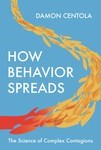 How Behavior Spreads: The Science of Complex Contagions by Damon Centola | Princeton University Press
How Behavior Spreads: The Science of Complex Contagions by Damon Centola | Princeton University Press
A new, counterintuitive theory for how social networks influence the spread of behavior.
New social movements, technologies, and public-health initiatives often struggle to take off, yet many diseases disperse rapidly without issue. Can the lessons learned from the viral diffusion of diseases be used to improve the spread of beneficial behaviors and innovations? In How Behavior Spreads, Damon Centola presents over a decade of original research examining how changes in societal behavior—in voting, health, technology, and finance—occur and the ways social networks can be used to influence how they propagate. Centola's startling findings show that the same conditions accelerating the viral expansion of an epidemic unexpectedly inhibit the spread of behaviors.
While it is commonly believed that "weak ties"—long-distance connections linking acquaintances—lead to the quicker spread of behaviors, in fact the exact opposite holds true. Centola demonstrates how the most well-known, intuitive ideas about social networks have caused past diffusion efforts to fail, and how such efforts might succeed in the future. Pioneering the use of Web-based methods to understand how changes in people's social networks alter their behaviors, Centola illustrates the ways in which these insights can be applied to solve countless problems of organizational change, cultural evolution, and social innovation. His findings offer important lessons for public health workers, entrepreneurs, and activists looking to harness networks for social change.
Practical and informative, How Behavior Spreads is a must-read for anyone interested in how the theory of social networks can transform our world.
 Gigged: The End of the Job and the Future of Work by Sarah Kessler | St. Martin's Press
Gigged: The End of the Job and the Future of Work by Sarah Kessler | St. Martin's Press
A colorful, character-driven dive deep into the gig economy.
More than one in three American workers is now a freelancer, and the gig economy, where workers are hired by the job—without the guarantee of steady hours or benefits—has quickly become an essential and seemingly permanent part of the U.S. labor market. High-profile tech startups like Uber and Airbnb are constantly in the news for the disruption they bring to the industries they overturn, but no one has yet zeroed in on the effects of this disruption on the workforce carrying it out.
In the tradition of the great business narratives of our time, Gigged offers a deeply-sourced, story-driven account of this new economy as it has been experienced by real people working in a range of professions. Weaving together the voices and experiences of influential tech entrepreneurs, top-flight economists, and in particular on the workers themselves, journalist Sarah Kessler wades through the hype and hyperbole the surrounds the gig economy.
Following a group of five main characters based everywhere from rural Arkansas to New York City, Kessler offers a nuanced look at how the future of work is playing out in real time across America. She tackles the big questions surrounding the future of work: can jobs be flexible and pay a sustainable wage? Will the millennial generation ever do as well their parents? How can meaningful, well-paid work be made more accessible to all?
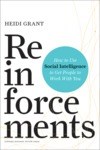 Reinforcements: How to Get People to Help You by Heidi Grant | Harvard Business Review Press
Reinforcements: How to Get People to Help You by Heidi Grant | Harvard Business Review Press
Imagine walking up to a stranger on the subway and asking them for their seat. What about asking a random person on the street if you could borrow their phone? If the idea makes you squeamish, you're not alone—social psychologists have found that doing these very things makes most of us almost unbearably uncomfortable.
But here's the funny thing: even though we hate to ask for help, most people are wired to be helpful. And that's a good thing, because every day in the modern, uber-collaborative workplace, we all need to know when and how to call in the cavalry.
However, asking people for help isn't intuitive; in fact, a lot of our instincts are wrong. As a result, we do a poor job of calling in the reinforcements we need, leaving confused or even offended colleagues in our wake.
This pragmatic book explains how to get it right. With humor, insight, and engaging storytelling, Heidi Grant, PhD, describes how to elicit helpful behavior from your friends, family, and colleagues—in a way that leaves them feeling genuinely happy to lend a hand.
Whether you're a first-time manager or a seasoned leader, getting people to pitch in is what leadership is. Fortunately, people have a natural instinct to help other human beings; you just need to know how to channel this urge into what it is you specifically need them to do. It's not manipulation. It's just management.
 The Power of a Positive Team: Proven Principles and Practices that Make Great Teams Great by Jon Gordon | Wiley
The Power of a Positive Team: Proven Principles and Practices that Make Great Teams Great by Jon Gordon | Wiley
A book about teams to help teams become more positive, united and connected.
Worldwide bestseller Jon gordon—the author of The Energy Bus and The Power of Positive Leadership—shares the proven principles and practices that build great teams, and provides practical tools to help teams overcome negativity and enhance their culture, communication, connection, commitment, and performance.
Jon Gordon doesn’t just research the keys to great teams, he has personally worked with some of the most successful teams on the planet and has a keen understanding of how and why they became great. In The Power of a Positive Team, Jon draws upon his unique team building experience as well as conversations with some of the greatest teams in history in order to provide an essential framework, filled with proven practices, to empower teams to work together more effectively and achieve superior results.
Utilizing examples from the writing team who created the hit show Billions, the National Champion Clemson Football team, the World Series contending Los Angeles Dodgers, The Miami Heat, and the greatest beach volleyball team of all time to Navy SEAL’s, Marching bands, Southwest Airlines, USC and UVA Tennis, Twitter, Apple, and Ford, Jon shares innovative strategies to transform a group of individuals into a united, positive and powerful team.
Jon not only infuses this book with the latest research, compelling stories, and strategies to maintain optimism through adversity, he also shares his best practices to transform negativity, build trust (through his favorite team building exercises), and practical ways to have difficult conversations—all designed to make a team more positive, cohesive, stronger, and better.
The Power of a Positive Team also provides a blueprint for addressing common pitfalls that cause teams to fail—including complaining, selfishness, inconsistency, complacency, unaccountability—while offering solutions to enhance a team’s creativity, grit, innovation and growth.
This is a book meant for teams to read together. It’s written in such a way that if you and your team read it together, you will understand the obstacles you will face and what you must do to become a great team. If you read it together, stay positive together, and take action together you will accomplish amazing things TOGETHER.
 Switchers: How Smart Professionals Change Careers—and Seize Success by Dawn Graham | AMACOM
Switchers: How Smart Professionals Change Careers—and Seize Success by Dawn Graham | AMACOM
Don’t settle… SUCCEED in the right career!
Are you stuck in an unsatisfying job? In the wrong profession? An industry that just isn’t a fit? Get unstuck! Land a new career—one you’re genuinely passionate about. Switchers helps you realize that dream. Written by celebrated career coach and psychologist Dr. Dawn Graham, the book provides proven strategies that will get you where you want to go. The first step is to recognize that the usual rules and job search tools won’t work for you. Resumes and job boards were designed with traditional applicants in mind. As a career switcher, you have to go beyond the basics, using tactics tailor-made to ensure your candidacy stands out.
The book reveals how to:
- Understand the concerns of hiring managers—and think like they do
- Craft a resume that catches their attention within six seconds
- Spotlight transferable skills that companies covet
- Rebrand yourself—aligning your professional identity with your new aspirations
- Reach decision-makers by recruiting “ambassadors” from within your network
- Nail interviews by turning tough questions to your advantage
- Convince skeptical employers to shelve their assumptions and take a chance on you
- Negotiate a competitive salary and benefits package—even as a “newbie” to the field
Career changers face unique challenges that demand fresh approaches. Packed with psychological insights, practical exercises, and inspiring success stories, Switchers helps you leap over obstacles and into a whole new field. Want to pull off the most daring—and fulfilling—career move of your life? Read Switchers.
 The Ambition Decisions: What Women Know About Work, Family, and the Path to Building a Life by Hana Schank & Elizabeth Wallace | Viking
The Ambition Decisions: What Women Know About Work, Family, and the Path to Building a Life by Hana Schank & Elizabeth Wallace | Viking
Over the last sixty years, women’s lives have transformed radically from generation to generation.
Without a template to follow—a way to peek into the future to catch a glimpse of what leaving this job or marrying that person might mean to us decades from now—women make important decisions blindly, groping for a way forward, winging it, and hoping it all works out.
As they faced unexpectedly fraught decisions about their own lives, journalists Hana Schank and Elizabeth Wallace found themselves wondering about the women they’d graduated alongside. What happened to these women who seemed set to reap the rewards of second-wave feminism, on the brink of taking over the world? Where did their ambition lead them?
So they tracked down their classmates and, over several hundred hours of interviews, gathered and mapped data about real women’s lives that has been missing from our conversations about women and the workplace. Whether you’re deciding if you should pass up a promotion in favor of more flex time, planning when to get pregnant, or wondering what the ramifications are of being the only person in your house who ever unloads the dishwasher, The Ambition Decisions is a guide to the changes that may seem arbitrary but are life defining, by women who’ve been there.
Organized by theme, each chapter draws on real women’s stories of facing down crisis, transition, and decision-making to illustrate broader trends Schank and Wallace observed. Each chapter wraps up with a useful bulleted list of questions to consider and tips to integrate that will guide women of all ages along the way to finding purpose and passion in work and life.
 Squeezed: Why Our Families Can't Afford America by Alissa Quart | Ecco
Squeezed: Why Our Families Can't Afford America by Alissa Quart | Ecco
Squeezed weaves together intimate reporting with sharp and lively critique to show how the high cost of parenthood and our increasingly unstable job market have imploded the middle-class American Dream for many families, and offers surprising solutions for how we might change things.
Families today are squeezed on every side—from high childcare costs and harsh employment policies to workplaces without paid family leave or even dependable and regular working hours. Many realize that attaining the standard of living their parents managed has become impossible.
Alissa Quart, executive editor of the Economic Hardship Reporting Project, examines the lives of many middle-class Americans who can now barely afford to raise children. Through gripping firsthand storytelling, Quart shows how our country has failed its families. Her subjects—from professors to lawyers to caregivers to nurses—have been wrung out by a system that doesn’t support them, and enriches only a tiny elite.
Interlacing her own experience with close-up reporting on families that are just getting by, Quart reveals parenthood itself to be financially overwhelming, except for the wealthiest. She offers real solutions to these problems, including outlining necessary policy shifts, as well as detailing the DIY tactics some families are already putting into motion, and argues for the cultural reevaluation of parenthood and caregiving.
Written in the spirit of Barbara Ehrenreich and Jennifer Senior, Squeezed is an eye-opening page-turner. Powerfully argued, deeply reported, and ultimately hopeful, it casts a bright, clarifying light on families struggling to thrive in an economy that holds too few options. It will make readers think differently about their lives and those of their neighbors.
 How Growth Really Happens: The Making of Economic Miracles through Production, Governance, and Skills by Michael H. Best | Princeton University Press
How Growth Really Happens: The Making of Economic Miracles through Production, Governance, and Skills by Michael H. Best | Princeton University Press
A groundbreaking study that shows how countries can create innovative, production-based economies for the twenty-first century.
Achieving economic growth is one of today's key challenges. In this groundbreaking book, Michael Best argues that to understand how successful growth happens we need an economic framework that focuses on production, governance, and skills.
This production-centric framework is the culmination of three simultaneous journeys. The first has been Best's visits to hundreds of factories worldwide, starting early as the son of a labor organizer and continuing through his work as an academic and industrial consultant. The second is a survey of two hundred years of economic thought from Babbage to Krugman, with stops along the way for Marx, Marshall, Young, Penrose, Richardson, Schumpeter, Kuznets, Abramovitz, Keynes, and Jacobs. The third is a tour of historical episodes of successful and failed transformations, focusing sharply on three core elements—the production system, business organization, and skill formation—and their interconnections.
Best makes the case that government should create the institutional infrastructures needed to support these elements and their interconnections rather than subsidize individual enterprises. The power of Best's alternative framework is illustrated by case studies of transformative experiences previously regarded as economic "miracles": America's World War II industrial buildup, Germany's postwar recovery, Greater Boston's innovation system, Ireland's tech-sector boom, and the rise of the Asian Tigers and China.
Accessible and engaging, How Growth Really Happens is required reading for anyone who wants to advance today's crucial debates about industrial policy, free trade, outsourcing, and the future of work.



